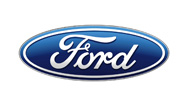Assessing Suppliers
Since 2003, we have conducted more than 8001 third-party audits of existing and prospective Tier 1 suppliers in 20 countries on issues relating to ethics and working conditions. The audits provide feedback to Ford and suppliers about how well suppliers are meeting legal requirements and Ford’s expectations. The audits also provide insight into the effectiveness of our training programs. The audits consist of a detailed questionnaire, a document review, factory visits, and management and employee interviews, and are conducted by external, qualified social auditors.
In 2012, we conducted audits across our 20 target countries. The findings from the 2012 audits were generally consistent with those we had previously conducted. Namely, they identified certain general health and safety issues, several wages and benefits issues and a limited number of other types of noncompliance.
The findings from Ford’s 2012 supplier audits included:
- No evidence of forced labor or physical disciplinary abuse
- Some health and safety issues, including inadequate emergency systems
- In some cases, a lack of appropriate timekeeping systems, and thus a failure to pay correct overtime wages
- In some cases, a failure to pay the correct local minimum wage or overtime, or to provide the correct social insurance
- A general need to clearly define policy on harassment and discrimination
- Limited cases of restricted workers doing hazardous work
- In some cases, limited or restricted access to appropriate documentation regarding subcontracted labor and privacy policies
- Working hours violations related to overtime (in some cases, this overtime is a chronic issue resulting from poor capacity planning, but more often it occurs only during peak production periods)
Freedom of association has been difficult to verify. While all assessed suppliers have either union representatives or a grievance process, there may be issues we have not been able to identify through our assessment process.
Another common finding is that suppliers often lack fully developed management systems – including continual improvement processes – to support compliance over time. This finding has validated our training approach, which continues to emphasize management systems at both the corporate and factory levels.
If any issues are identified during an audit, suppliers are required to complete corrective action plans, which Ford reviews and approves. The corrective action plans outline how a supplier will resolve the issues and include clear responsibility and timelines for completion. Assessments cannot be considered “closed” until any violations of local laws and regulations are resolved and until the supplier has responded in writing with an action plan for improving management systems and policies to avoid future issues. We return to the facility within six to 12 months as required to confirm resolution of the issues. Suppliers that continue to be out of compliance with Ford expectations and/or local laws are at risk of being removed from Ford’s supply base.
The audit tool that Ford uses with Tier 1 suppliers has been an important means for furthering our understanding of both the issues and the root causes for noncompliance. If issues are identified or allegations made of a sub-tier supplier, Ford makes available our assessment tool and guidance to our responsible Tier 1 supplier. In this way, we hope to affect positive change more broadly and enable our suppliers to effectively manage their supply base.
In 2013, we will continue to conduct supplier assessments across the target countries as necessary. We constantly monitor approaches developed by other organizations and industries in order to incorporate what they have learned into our approach. We will continue to work with direct suppliers to help create ownership of working conditions within those supplier organizations. Clear, consistent communication and further business integration of processes that support responsible working conditions throughout the supply chain will be a key component of our continued work.
We have conducted more than 800 assessments of Tier 1 suppliers in 20 countries on issues relating to ethics and working conditions
- This number has been revised from last year’s report to address calculation errors.










